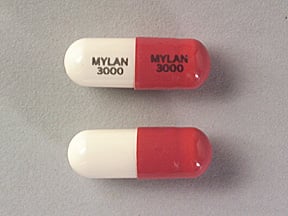
Meclofenamate Coupons & Savings Card – Discount Prices from $189.39
Meclofenamate is a nonsteroidal anti-inflammatory drug (NSAID) primarily used to alleviate fever and various types of pain, including headaches, dental pain, muscle aches, gout attacks, and menstrual cramps. It also helps manage pain, swelling, and joint stiffness associated with conditions like rheumatoid arthritis, osteoarthritis, juvenile arthritis, ankylosing spondylitis, tendinitis, and bursitis. Additionally, it can reduce minor aches and pain from the common cold or flu.
The medication works by inhibiting certain proteins in the body, specifically cyclooxygenase (COX), which are responsible for causing inflammation, pain, and swelling. By blocking these proteins, meclofenamate effectively decreases these symptoms. It is available as an affordable generic capsule and is typically taken orally multiple times a day, with the dosage depending on the specific condition being treated.
Common side effects may include diarrhea, nausea, and vomiting. It is crucial to discuss with your doctor about any concurrent non-drug treatments or other medications if you're managing a chronic condition such as arthritis. Always consult healthcare professionals for personalized medical advice before starting any new medication or therapy.
Our coupons are free to use. Before paying, show the pharmacist your Meclofenamate savings card to get your free discount. Use our filters below to edit the prescription box to match your needs. The Meclofenamate prices will update based on your prescription needs. Above our Meclofenamate coupons, you can change your location to see pharmacy prices and costs in other areas. We're here to help you buy Meclofenamate at the lowest price with our prescription discount card.
My prescription
Edit
100MG, Meclofenamate (100 Capsules)
Select pharmacy

CVS
$241.18
COUPON PRICE
Walgreens
$189.39
COUPON PRICE
Walmart
$610.87
COUPON PRICE
Albertsons
$659.47
COUPON PRICEMeclofenamate savings card
Show this card to your pharmacist
Walgreens
$189.39
BIN
ID
PCN
GRP
015995
LHKPW361487
GDC
DR33
Powered by
Meclofenamate is a nonsteroidal anti-inflammatory drug (NSAID) primarily used to alleviate fever and various types of pain, including headaches, dental pain, muscle aches, gout attacks, and menstrual cramps. It also helps manage pain, swelling, and joint stiffness associated with conditions like rheumatoid arthritis, osteoarthritis, juvenile arthritis, ankylosing spondylitis, tendinitis, and bursitis. Additionally, it can reduce minor aches and pain from the common cold or flu.
The medication works by inhibiting certain proteins in the body, specifically cyclooxygenase (COX), which are responsible for causing inflammation, pain, and swelling. By blocking these proteins, meclofenamate effectively decreases these symptoms. It is available as an affordable generic capsule and is typically taken orally multiple times a day, with the dosage depending on the specific condition being treated.
Common side effects may include diarrhea, nausea, and vomiting. It is crucial to discuss with your doctor about any concurrent non-drug treatments or other medications if you're managing a chronic condition such as arthritis. Always consult healthcare professionals for personalized medical advice before starting any new medication or therapy.
Our coupons are free to use. Before paying, show the pharmacist your Meclofenamate savings card to get your free discount. Use our filters below to edit the prescription box to match your needs. The Meclofenamate prices will update based on your prescription needs. Above our Meclofenamate coupons, you can change your location to see pharmacy prices and costs in other areas. We're here to help you buy Meclofenamate at the lowest price with our prescription discount card.
Related NSAIDs prescriptions
More prescriptions for rheumatoid arthritis
coupons from$19.83Save 80%
coupons from$983.22Save 62%
coupons from$186.58Save 49%
coupons from$12.96Save 73%
coupons from$9.65Save 78%
coupons from$7.84Save 63%
coupons from$21.67Save 35%
coupons from$5.98Save 87%
Related NSAIDs prescriptions
Naprosyn Save 74%coupons from $6.55
Zorvolex Save 93%coupons from $55.74
Elyxyb Save 74%coupons from $132.35
Indocin Save 89%coupons from $467.32
Salsalate Save 60%coupons from $26.66
Cambia Save 97%coupons from $89.85
Bromsite Save 80%coupons from $87.84
Daypro Save 49%coupons from $32.68
More prescriptions for rheumatoid arthritis
Dexamethasone Intensol Save 80%coupons from $19.83
Enbrel Save 62%coupons from $983.22
Tolectin 600 Save 49%coupons from $186.58
Sulindac Save 73%coupons from $12.96
Ft Arthritis Pain Save 78%coupons from $9.65
Aspirin Save 63%coupons from $7.84
Cortef Save 35%coupons from $21.67
Celebrex Save 87%coupons from $5.98
Meclofenamate dosage forms
Use our Meclofenamate 50MG coupon with prices from $137.86 for 100 Capsules. You can also use our Meclofenamate 100MG coupon with prices from $241.18 for 100 Capsules.
Dosage Quantity Price from Per unit 50MG 100 Capsules $137.86 $1.38 100MG 100 Capsules $241.18 $2.41
| Dosage | Quantity | Price from | Per unit |
|---|---|---|---|
| 50MG | 100 Capsules | $137.86 | $1.38 |
| 100MG | 100 Capsules | $241.18 | $2.41 |
